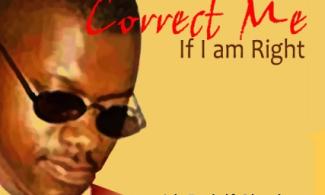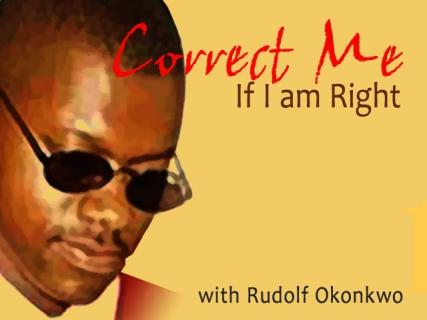
Even though the people who elected him may not have articulated it, the truth is that they did not elect Buhari to do the ordinary. They elected him to do the extraordinary.

While some are still obsessing over how Muhammadu Buhari got elected president, asking whether the Americans or the Saudis orchestrated his emergence long before Nigerians lined up to vote, the giant clock is ticking to the beginning of his presidency.
A more pertinent concern, beyond the tales and the intrigues surrounding his emergence, is what his presidency could mean for Nigerians. Like every new beginning, there is an opportunity here for something good to happen. And of course, there is that ever present opportunity for something bad to happen- even something terrible. It all depends on the first place Buhari chooses to spend his political capital.
Some who voted for Buhari have said that they elected him to deal with corruption, insecurity and unemployment. While these are noble goals, they are not enough. Those issues are offshoots of a larger problem. Tackling that larger problem is something that would leave a permanent mark on Nigeria- one that could be carried on whether Buhari is president or not.
The larger problem can be found in that thing that makes the Nigerian not to be proud of his or her country. It could be found in that thing that makes the Nigerian feel on edge about his place in his or her own country. It could be found in the monster that stares in the face of every Nigerian and tells him or her at every corner of the nation that ours is an unjust society.
That is where Buhari’s toughest command is. That is where Buhari should invest his first political capital. He should tackle the toughest task just the way Barack Obama tackled the Healthcare issue in America. If Obama had not done it within the first few years of his administration, investing his political capital in it, he wouldn’t have been able to accomplish it in later years. And as we now know, that has turned out to be Obama’s pathway to the history books.
Corruption, insecurity and unemployment exacerbate the primary problems of Nigeria. But not dealing with the primary problems will eat up any gains made in tackling corruption, insecurity and unemployment. It would be like what happened to War Against Indiscipline the moment Ibrahim Babangida overthrew the Buhari-Idiagbon government in 1985.
The structural flaws in Nigeria’s design are no small matters. They are like chains that tied the nation down and made it impossible for the country to effectively kick against ordinary malaise afflicting it. Fixing these fundamental problems requires serious restructuring of the nation.
Can Buhari make a dent on them? Can he move things forward? That will be the ultimate test of his presidency.
The cheap option is to amend the constitution. It is a half way solution. But as we have seen in the last 16 years, the elected members of the National Assembly could not even accomplish that simple chore. The reason they haven’t been able to do so is that the masquerade is bigger than them.
In a SaharaTV interview with Senator-elect Shehu Sani, he told me that President Jonathan should not forget to take his National Conference Report with him when leaving Aso Rock. Sani argued that nothing in the report was different from what other conferences of that nature had attempted to resolve. He said so while at the same time acknowledging that the military constitution that Nigeria has been saddled with is inadequate and needs to be reviewed and amended.
While the APC did not participate in the National Conference, it would be a big mistake to completely abandon what was discussed there and all the resolutions reached. If nothing else, the drama of the conference showed that as a nation we have a lot of tough issues to deal with. We can continue to downplay them or outright deny them; or we can take a bold step to tackle them once and for all. The choice is ours.
In a SaharaTV interview with the president-elect, Gen. Buhari, I asked him several questions to which his answers were that his government would follow the constitution. But when the constitution is the problem, what will his government do?
Whether it is the issue of devolving power, separation of religion and state, sharing of power between states and the federal, relationship between the three arms of government, it all boils down to the constitution. A flawed constitution begets a flawed nation. Fighting corruption, insecurity and unemployment without restructuring the country will still leave a flawed nation behind.
The task of restructuring Nigeria can easily be done under a president from the north. The reason is because the bulk of those who rise in opposition to most items on the restructuring plate are from the north. A similar example is with the perennial US immigration reform issue. The opposition to any form of amnesty has always come from the Republicans. For that same reason, only Republican presidents have had an easy time pushing through an immigration reform that entails granting amnesty to illegal immigrants. A bold Buhari presidency could settle once and for all, the key issues in the restructuring quest with minor resistance.
Buhari’s honeymoon, if any, will be very short because Nigeria is in distress. And because he had been head of state before, few will give him room to learn the ropes.
The first challenge facing Buhari is where he should invest his political capital first. I dare to suggest one- spend it tackling the big structural problems facing Nigeria.
Despite all the excitement surrounding his election and the claim that something fundamentally changed in Nigeria, the truth is that nothing would have changed if he spends the next four years doing the ordinary- like tackling corruption, insecurity and unemployment.
Even though the people who elected him may not have articulated it, the truth is that they did not elect Buhari to do the ordinary. They elected him to do the extraordinary. And he can, if he is willing to invest his political capital in it.
The earlier the better.